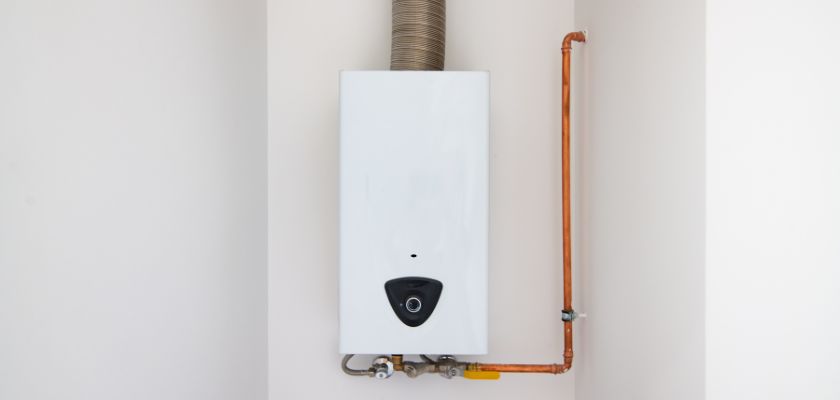Installing a gas water heater can be a straightforward process if done correctly. It is crucial to follow safety guidelines and proper techniques to ensure a smooth and safe installation. This article will guide you through essential safety tips and techniques for gas water heater installation.
Table Of Contents
Understanding the Basics of Gas Water Heater Installation

Choosing the Right Location
The first step in the installation process is selecting an appropriate location for the gas water heater. Ensure that the area is well-ventilated and away from any flammable materials. Adequate space should be available for maintenance and easy access.
Gathering Necessary Tools and Materials
Before starting the installation, gather all necessary tools and materials. This includes a wrench, pipe cutter, screwdriver, gas line, and venting materials. Having everything ready will make the process smoother and quicker.
Checking Local Codes and Regulations
It’s essential to check local building codes and regulations regarding gas water heater installation. Compliance with these codes is crucial for safety and legality. Contact local authorities or a professional installer if you are unsure about the specific requirements in your area.
Safety Tips for Installing a Gas Water Heater
Turning Off the Gas Supply
Before beginning the installation, turn off the gas supply to avoid any accidental leaks or hazards. Locate the gas shut-off valve and ensure it is completely turned off. Double-check to confirm no gas is flowing.
Venting the Water Heater
Proper venting is critical for the safe operation of a gas water heater. Ensure the venting system is correctly installed to prevent the buildup of harmful gases like carbon monoxide. Use the appropriate venting materials and follow manufacturer guidelines closely.
Using a Gas Leak Detector
After installing the gas water heater, use a gas leak detector to check for any leaks. Apply the detector around the gas connections and lines to ensure there are no leaks. If a leak is detected, immediately turn off the gas supply and address the issue before proceeding.
Techniques for Efficient Gas Water Heater Installation
Connecting the Gas Line
Connecting the gas line is a crucial part of the installation process. Use a flexible gas line for ease of connection and follow the manufacturer’s instructions. Ensure all connections are tight and secure to prevent leaks.
Securing the Water Heater
Properly securing the water heater in place is essential to prevent any movement or tipping. Use appropriate brackets or straps to secure the heater to the wall or floor. This is especially important in areas prone to earthquakes.
Testing the Installation
Once the installation is complete, it is vital to test the system to ensure everything is functioning correctly. Turn on the gas supply and ignite the pilot light according to the manufacturer’s instructions. Check for proper operation and make any necessary adjustments.
Final Wording
Installing a gas water heater requires careful attention to safety and proper techniques. By following the tips and techniques outlined in this guide, you can ensure a safe and efficient installation. Remember to always turn off the gas supply, use proper venting, and check for leaks with a gas leak detector. For those in need of professional assistance, consider searching for a reliable service for water heater installation North Richland Hills TX.
For those who prefer an electric water heater, you can find an electric water heater installation guide online for detailed instructions. Whether you choose a gas or electric water heater, safety should always be your top priority.
FAQ’s
When installing a gas water heater, key safety considerations include ensuring proper ventilation to prevent the buildup of harmful gases, checking for gas leaks using a gas leak detector, and turning off the gas supply during installation. Additionally, make sure to follow local building codes and manufacturer’s guidelines to ensure a safe and compliant installation.
Can I install a gas water heater myself, or should I hire a professional?
While it is possible for a knowledgeable DIY enthusiast to install a gas water heater, it is recommended to hire a professional, especially if you lack experience with gas appliances. A professional installer ensures that the installation meets all safety and regulatory requirements, reducing the risk of potential hazards.
How do I choose the right location for my gas water heater?
The right location for a gas water heater should be well-ventilated and free from flammable materials. It should provide easy access for maintenance and repairs. Additionally, check local codes for any specific placement requirements. Avoid placing the heater in small, enclosed spaces without proper ventilation.
What tools and materials do I need for installing a gas water heater?
Essential tools and materials for installing a gas water heater include a wrench, pipe cutter, screwdriver, flexible gas line, venting materials, and a gas leak detector. Having these items on hand before beginning the installation will ensure a smoother and more efficient process.
How can I ensure my gas water heater is properly vented?
Proper venting is crucial for the safe operation of a gas water heater. Use appropriate venting materials and follow the manufacturer’s instructions for installation. Ensure the vent pipes are properly connected and extend to the outside to expel gases safely. It is also important to inspect the venting system periodically for any obstructions or damage.







